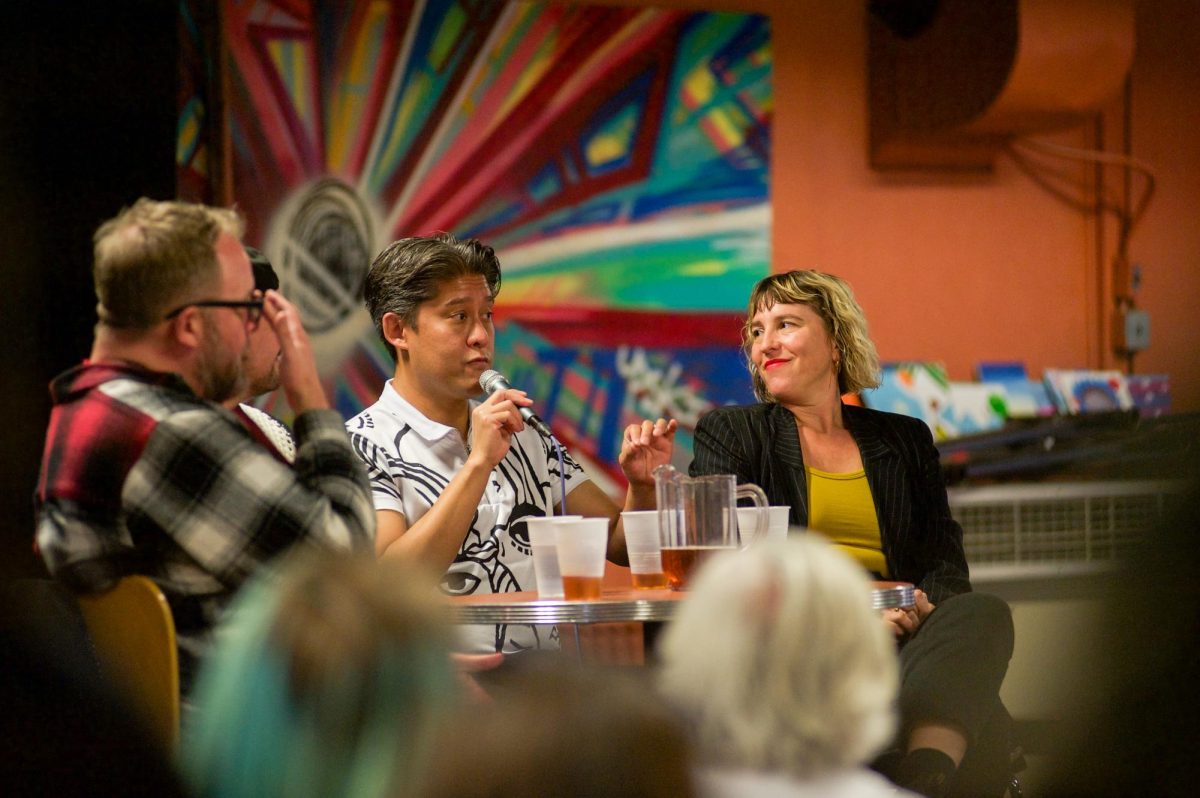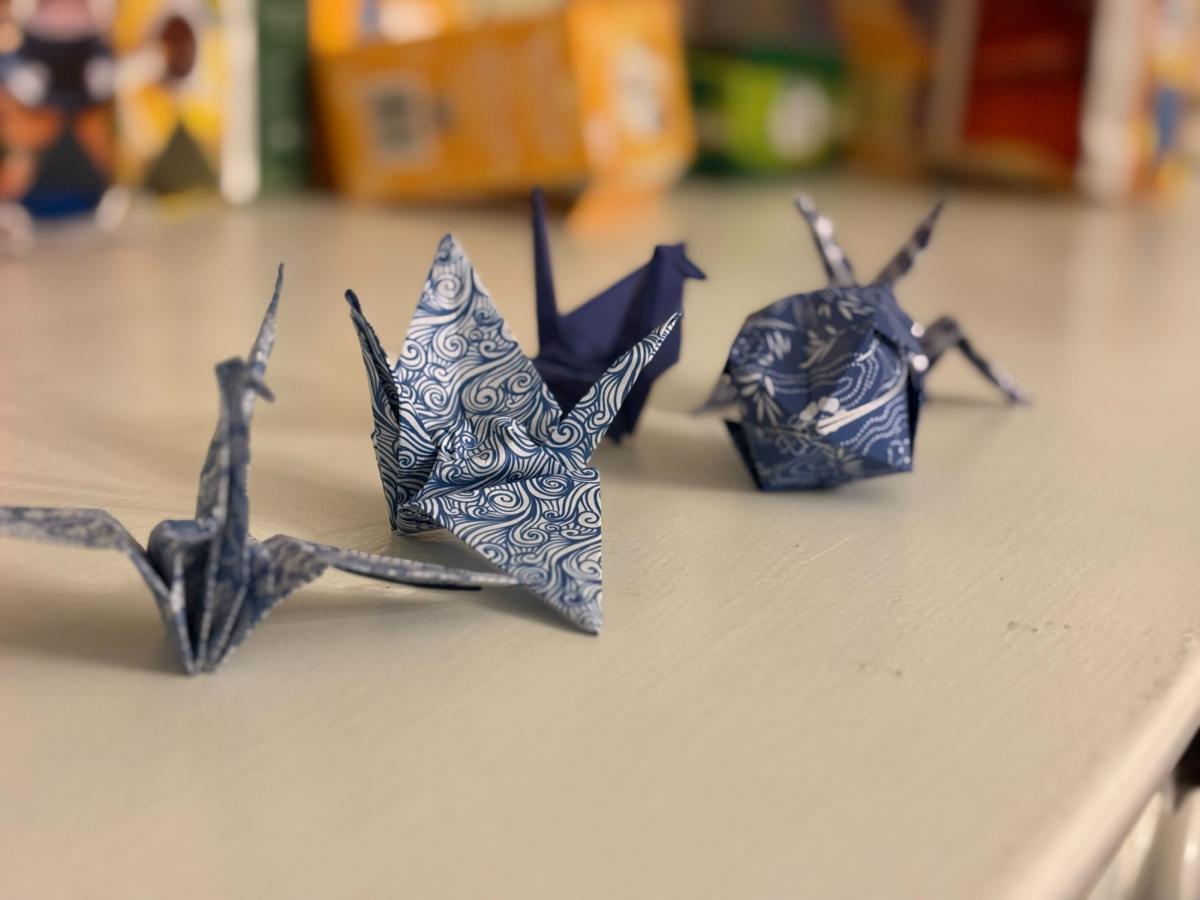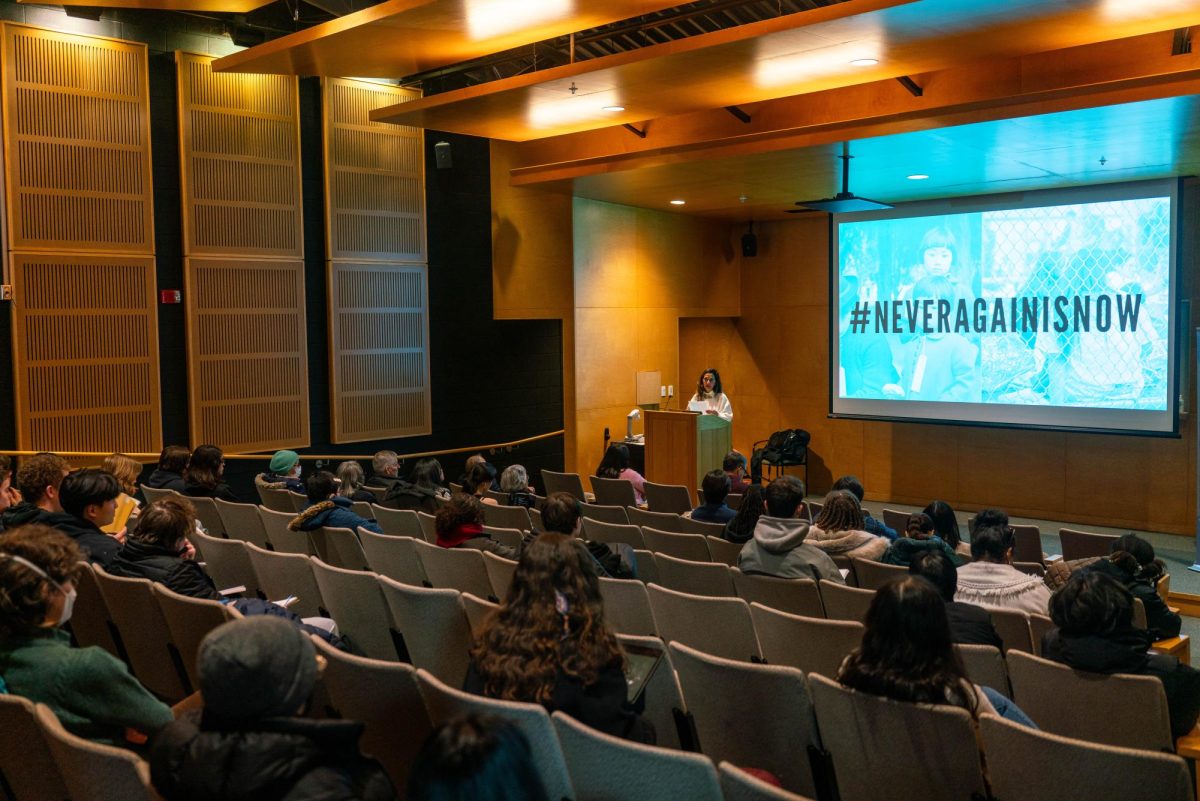This Tuesday, Chair of Sociology Greggor Mattson hosted a panel at The ’Sco of Oberlin alumni who now own LGBTQ+ bars. The panel was inspired by his 2023 book, Who Needs Gay Bars? Bar-Hopping through America’s Endangered LGBTQ+ Places. It was sponsored by Career Exploration and Development, the Office of Alumni Engagement, and StudiOC. This panel included Emily Bielagus, OC ’06, the owner of Rubyfruit in Los Angeles; Renato Estacio, OC ’01, the owner of Sidewinders in Albuquerque, NM; and Jesse Plotsky, OC ’07, the owner of Babes Bar in Bethel, VT. This opportunity to learn about the unique challenges of owning an LGBTQ+ bar and why they are such a necessary resource was free for all members of the College and community and provided a fascinating insight into a world that many Obies are unfamiliar with.
“Queer spaces are everywhere,” Mattson said. “[The speakers] were from three time zones. They were from three different states: one a giant city, the second largest in the country; one in one of the smallest towns in Vermont; and one in a city everyone’s heard of, but nobody thinks about.”
As different as each bar may be, all of the owners unequivocally agreed that the single most important reason for LGBTQ+ bars was the community that they bring.
Estacio spoke about how Sidewinders hosts different themed events each night of the week, drawing a different crowd each time. The philosophy behind Sidewinders is that it is a safe space for everyone, and by making it appeal to as many people as possible, they can expand the community they serve. Whether it be the young drag queens at performances or the elders who return each happy hour, many kinds of people all have community there.
Rubyfruit in Los Angeles is unique for being a lesbian bar, or as Bielagus put it, “for the sapphically inclined.” Being a bar aimed for this audience put Bielagus in a position where she was catering towards and had to be especially mindful of transgender women, some of the most vulnerable members of the LGBTQ+ community. She told a story of how one time, a transgender woman from the Deep South had flown all the way to LA, and as soon as she landed, she headed straight for Rubyfruit. Spaces like Rubyfruit are quite rare, yet they are so needed by people all across the country.
Bethel Vermont’s Babes Bar is one of the few LGBTQ+ bars in a rural community, meaning that it serves a much wider area than a bar in a big city. Because of its location, many patrons of the bar, especially during the day and earlier in the evening, are not LGBTQ+; they are self-described rednecks. Even so, they are still able to find a sense of community in the bar, as just like the other two panelists, Plotsky says that his bar is for anyone who needs it.
This message of solidarity is something that is very applicable to Oberlin, both for students of the College and members of the community. Even though there is not a gay bar in Lorain County, that does not mean that there is not a place for LGBTQ+ people to find community.
Mattson pointed to The Feve as an example of such a place.
“Queer people don’t only go to queer places, and I adore The Feve,” Mattson said. “I often say I don’t know if I would live in town if The Feve wasn’t here. The Feve is so queer-friendly and has been here for decades.”
Although there are not many designated queer spaces in Lorain County, more are being created within already-existing places. This is something that both serves the community and students as well as supports a local institution.
The alumni featured spoke to how important it is to create community.
“The world needs community,” Mattson said. “And Obies are learning how to do that. I hope you go off into the world and spread the love.”












